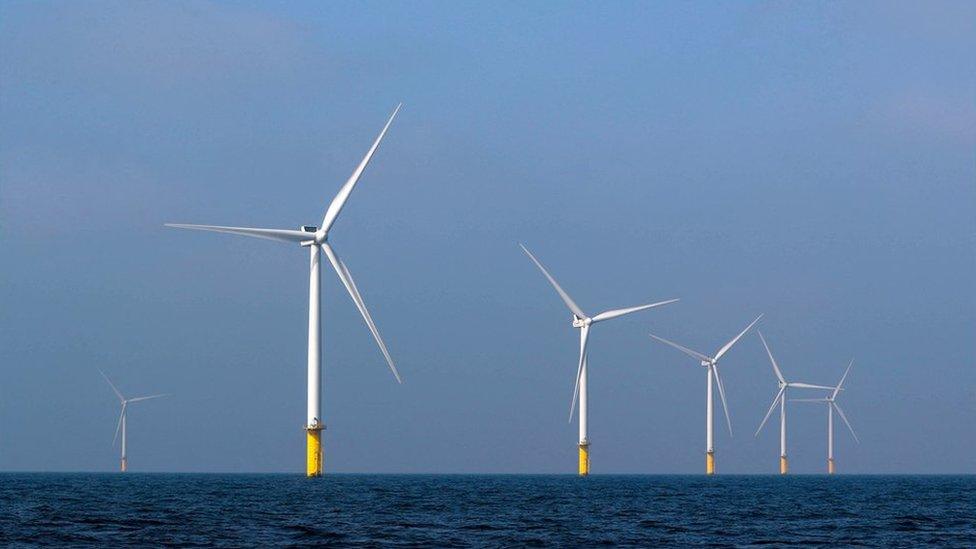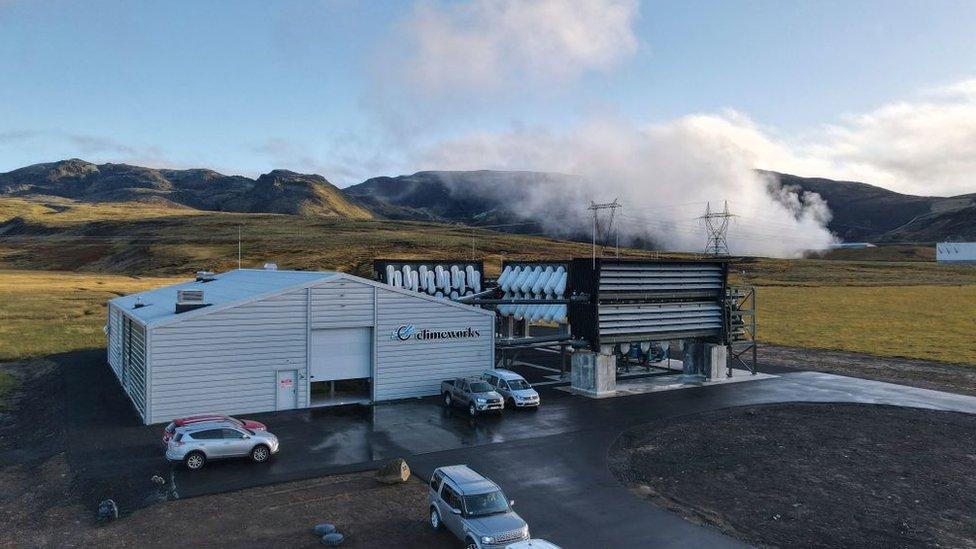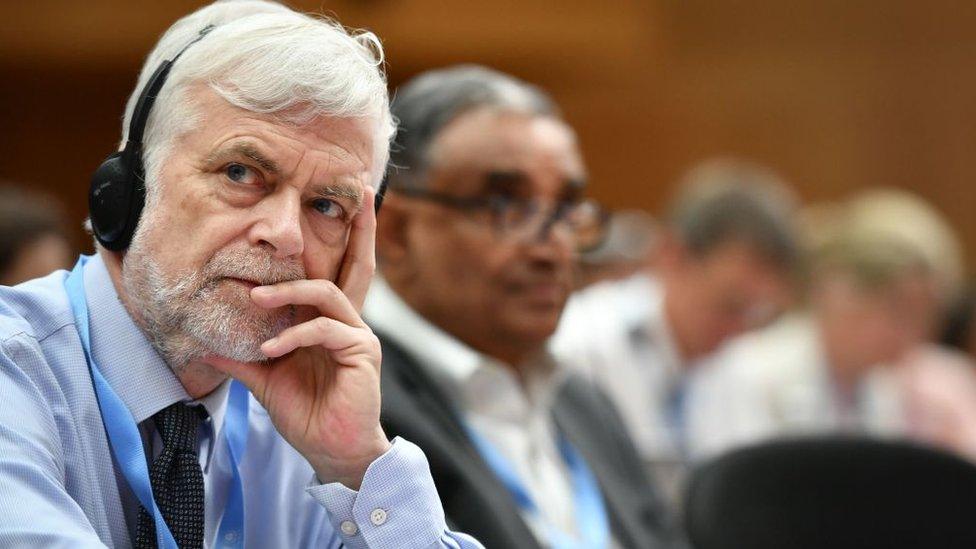Climate change: Scientists race to finish key IPCC report
- Published

UN scientists have worked through the weekend to complete a key report on how to restrict the greenhouse gases that are warming the planet.
Members of the Intergovernmental Panel on Climate Change are likely to advise a rapid shift from fossil fuels over the next 8 years.
They will also suggest the widespread use of carbon removal technology to limit dangerous warming.
But disputes over the exact wording of the document have delayed agreement.
The IPCC is set to publish their findings on what we can do to stem climate change on Monday.
Most of the world's leading researchers on climate change are involved in the production of IPCC reports - their summaries of the latest science, produced every six or seven years, are used by governments in their negotiations on climate change, such as those that took place at COP26 last November.
These IPCC reports are seen as the best, if slightly conservative studies on the state of climate science.
For the past two weeks, IPCC scientists and government officials from all over the world have been locked in a virtual approval session, going through this latest report on how to stop climate change line by line.
This new study will be the third of three important documents from the IPCC issued over the past eight months.
The previous two have looked at the causes and impacts of climate change, but this one will focus on mitigation - or what we can do to stop it.
This essentially means that researchers will look at how we can reduce the amount of warming gases that are emitted from human activities.
One key part of the summary report will detail what the world can do between now and 2030 to limit heating.

Carbon removal technology, such as at this installation in Iceland, will be examined
IPCC scientists have previously warned that to keep the rise in global temperatures under 1.5C this century, emissions from warming gases would have to halve by the end of this decade.
In this new study, the researchers will likely be encouraging a rapid reduction in fossil fuel use, especially over the next eight years.
But this is sensitive territory - many large developing countries say that they should have the right to continue to use coal, oil and gas for longer, to help grow their economies.
Some major fossil fuel producers are also reluctant to embrace the urgency of cutting these fuels that scientists say is absolutely necessary.
Other countries have also taken issue with questions around the use of nuclear energy.
These divisions have seen the approval session continue way past its official closing time on Friday.
According to one person with knowledge of the proceedings, it is not a surprise that the talks are running late as everyone recognises the implications this report will have on decisions that will have to be taken in next few years.
Another key part of the report will be the focus on approaches to remove CO2 from the air.

Prof Jim Skea is one of the co-chairs of the latest IPCC report
The kind of carbon removal approaches the report will consider will likely include tree planting and agriculture, as well as the more advanced technological approaches that use large machines to remove the carbon from the air.
They will also look at combined approaches, where land is used to grow crops which can be burned for energy while the carbon is captured and buried.
The use of these types of technology is controversial. Campaigners express doubts that they can be made to work economically and there are also concerns that technology could be seen as an excuse not to make the major changes in energy production that are needed.
Scientists though say that the situation is now so serious that carbon dioxide removal will be needed in addition to massive cuts in emissions.
The discussions to approve the report's Summary for Policymakers, due on Monday, have been one of the longest in IPCC history.
Delegates worked through Saturday night and well into Sunday to finish the document.
Follow Matt on Twitter @mattmcgrathbbc, external.
